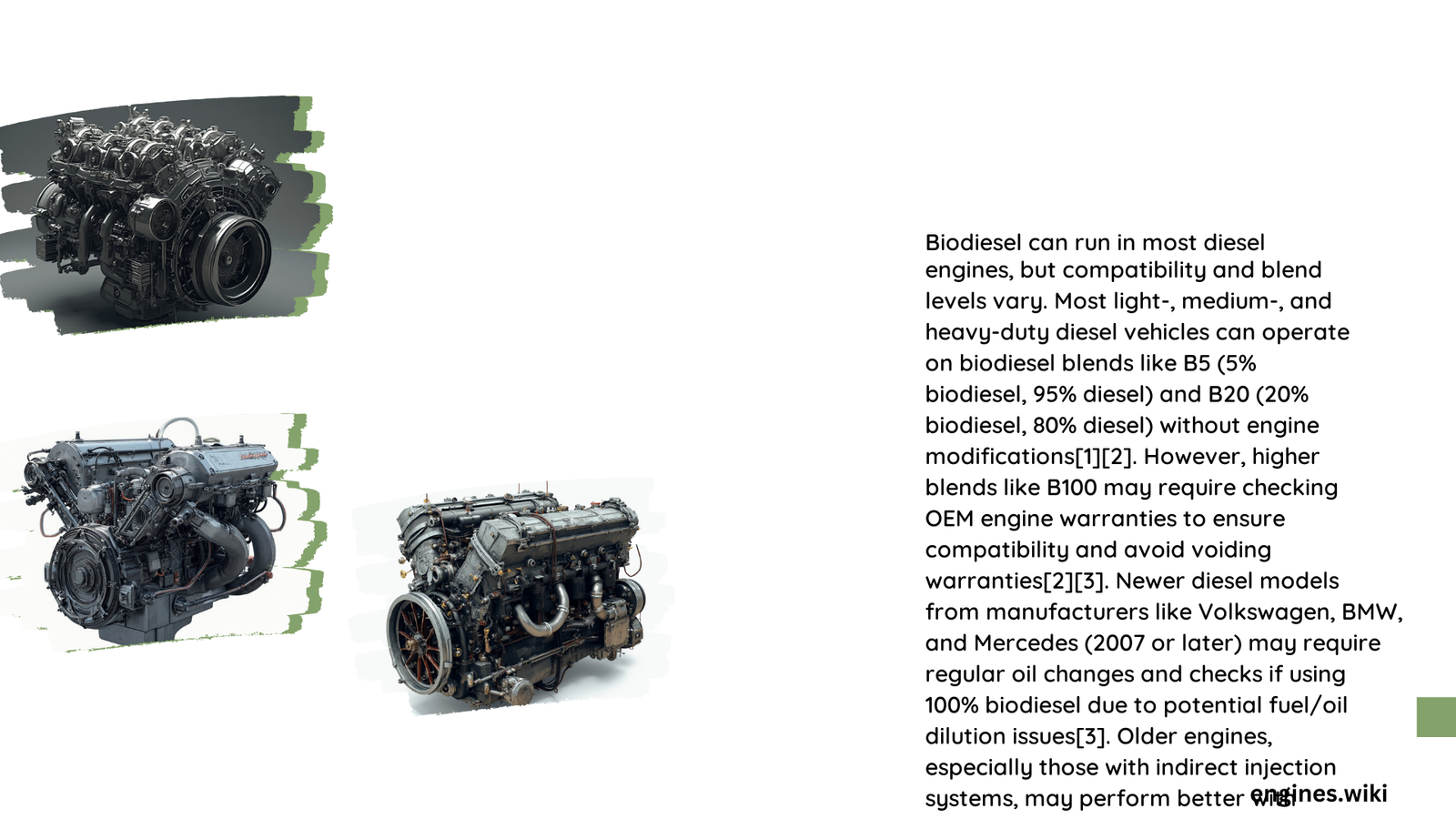Biodiesel represents a promising alternative fuel technology that can potentially run in many diesel engines, but compatibility varies significantly across different vehicle models, years, and fuel system configurations. Not all diesel engines are created equal when it comes to biodiesel adoption, with factors like engine age, manufacturer specifications, and blend percentages playing crucial roles in determining successful implementation and long-term performance.
Can Biodiesel Work in Every Diesel Engine?
What Determines Biodiesel Compatibility?
Biodiesel compatibility depends on several critical factors:
- Engine Manufacturing Year
- Pre-2000 diesel engines: Generally more compatible
-
Post-2007 engines: Often require specific considerations
-
Manufacturer Specifications
- Some manufacturers explicitly approve biodiesel blends
- Others recommend strict limitations
Which Diesel Engines Handle Biodiesel Best?
| Engine Model | Biodiesel Compatibility | Recommended Blend |
|---|---|---|
| GM Duramax 6.6L (2001-2007) | Excellent | Up to B100 |
| Dodge Cummins 5.9L (1989-1998) | Very Good | Up to B100 |
| Volkswagen Diesel (1979-2003) | Good | Up to B20 |
| Modern Common Rail Engines | Limited | B5-B20 |
What Technical Modifications Might Be Necessary?
Fuel System Adjustments
- High-quality fuel filters (5 microns or less)
- Compatible seal materials
- Potential secondary lift pump installation
Performance Considerations
Biodiesel impacts on engine performance include:
– Slight reduction in horsepower (1-2% for B20)
– Marginally decreased fuel economy
– Potential increased maintenance requirements
Critical Compatibility Factors
Key elements determining successful biodiesel integration:
– Fuel quality meeting ASTM D6751 standards
– Proper filtration
– Regular maintenance
– Understanding specific engine limitations
Potential Challenges
Risks and considerations when using biodiesel:
– Potential seal and hose degradation
– More frequent filter replacements
– Slight performance variations
– Higher fuel costs compared to conventional diesel
Expert Recommendations
- Consult vehicle manufacturer guidelines
- Start with lower biodiesel blends (B5-B20)
- Monitor engine performance closely
- Use high-quality, standards-compliant biodiesel
- Perform regular maintenance checks
Conclusion

While biodiesel can run in many diesel engines, universal compatibility is not guaranteed. Careful research, manufacturer consultation, and gradual implementation are crucial for successful biodiesel adoption.
Technical Specifications Checklist
- ✓ Verify engine model compatibility
- ✓ Check manufacturer warranty
- ✓ Assess fuel system components
- ✓ Monitor performance metrics
Cost and Environmental Considerations
Biodiesel offers potential environmental benefits and can be a viable alternative fuel, but individual engine characteristics must be thoroughly evaluated.
Reference:
– Alternative Fuels Data Center
– Utah Biodiesel Supply
– DieselNet Compatibility Guide
